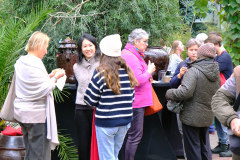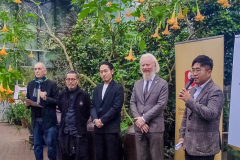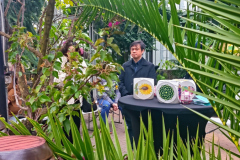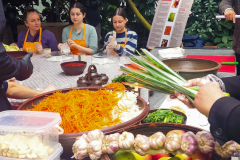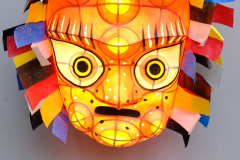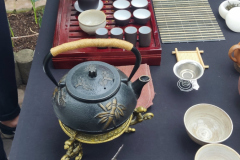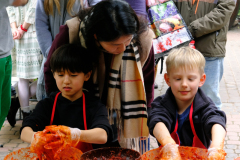The second-ever "Kimchi in Onggi" Festival on the grounds of the PAN Botanical Garden's orangery in Powsin is behind us. The event, which took place on November 16, 2024, was organized in cooperation with the ONGGI Poland-Korea Cultural Association and Center for Korean Culture in Warsaw 주폴란드한국문화원.
The event included such activities as a tea brewing demonstration with tasting, a kimchi making workshop and a kimchi burying ceremony that ended the event. The event was topped off with workshops on making Korean lanterns and calligraphy.
The "Kimchi in Onggi" festival was officially opened by Director Pawel Kojs of the PAS Botanical Garden in Powsin. The ceremony was graced with the presence of distinguished guests, including the director of the Korean Cultural Center, Dangkweon Lee. The association was represented by Hyon Kim and Wladyslaw Gdowik.
Kimchi is an internationally recognized, integral part of Korean culture and culinary tradition for its health-promoting properties. Ceramic onggi pots are used to prepare it.
Making kimchi together - Kimjang - was listed as a UNESCO Intangible Cultural Heritage of Humanity in 2013.
Onggi are traditional Korean ceramics that have been used for centuries as tableware and for storing food (such as rice, soy sauce, salted fish, kimchi, alcohol and drinking water). Thanks to their porosity, onggi dishes are ideal for storing fermented products. Unlike the more aesthetically pleasing white porcelain, celadon, or buncheong-style ceramics, onggi is mainly regarded as a traditional item for everyday use.
Therefore, in an age of environmental concern, these traditional vessels are an eyesore and an essence of nature born from observing and experiencing the world. And for contemporary artists, for example, they are a utilitarian value.


